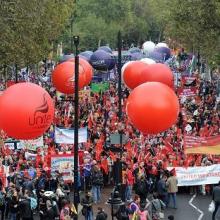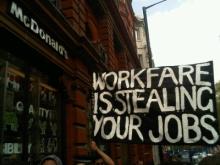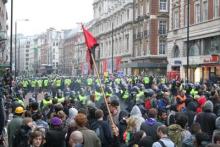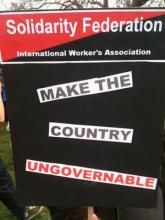Problems at work - No. 8: Minimum Wage, Maximum Hours
The announcement that the minimum wage is set to rise to £4.85 next predictably had union leaders, desperate for a reason to stick with Labour, claiming that in the fight against poverty the Govemment really is making a difference. They are deluding themselves; the minimum wage is not about ending poverty, it is set so low it merely legaises poverty wages. Labour see a low wage economy, in which the working class remain powerless, as the essential ingredient of a 'successful' 'free market' economy. Labour's inspiration is not justice or equality, but the USA, where the minimum wage has been in force for years and has done nothing to prevent the growth in poverty and obscene inequalities.







